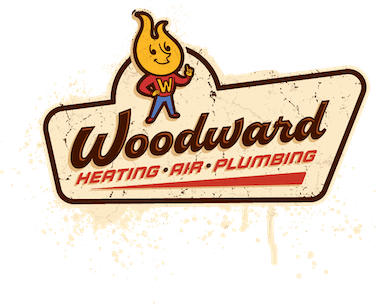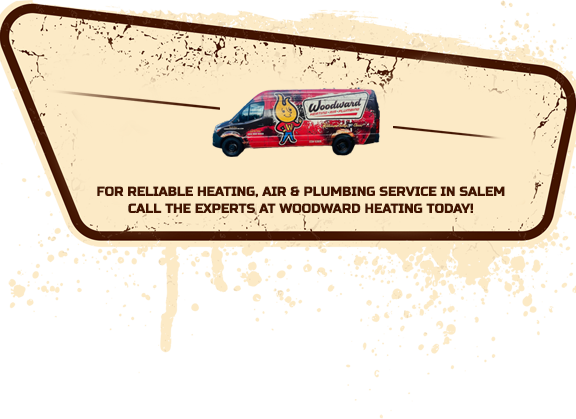
Poor indoor air quality can significantly impact your health and overall comfort. For that reason, you should consider checking the indoor air quality of your home. There are many reasons why you should schedule these inspections. Learn about the benefits of having your indoor air quality checked on a regular basis.
The Risks of Poor Indoor Air Quality
Poor indoor air quality is a significant concern for residential and commercial spaces. When the air inside a building is contaminated with pollutants, it can have serious health consequences for the occupants. These pollutants can come from various sources, such as outdoor air, building materials, and everyday activities like cooking and cleaning.
Respiratory issues are some of the most significant health risks associated with poor indoor air quality. Indoor air pollution can exacerbate asthma and allergies, causing coughing, wheezing, and shortness of breath. It can also cause other respiratory problems, such as bronchitis and pneumonia. People who have pre-existing respiratory conditions are vulnerable to the adverse effects of poor indoor air quality.
In addition to respiratory problems, poor indoor air quality can cause eye, nose, and throat irritation, headaches, and dizziness. These symptoms can be particularly noticeable in people who spend a lot of time in the affected space, such as office employees or home residents.
The negative effects of poor indoor air quality aren’t limited to health risks. They can also impact productivity and increase energy costs. When the air quality is poor, it can be challenging to focus and perform tasks effectively. This can lead to decreased productivity and an overall decrease in the quality of work. Poor indoor air quality can also cause HVAC systems to work harder to compensate, increasing energy costs.
Factors Affecting Indoor Air Quality
Inadequate ventilation is a common issue that can lead to poor indoor air quality. Proper ventilation removes indoor air pollutants like carbon monoxide and volatile organic compounds (VOCs). Once removed, the system works to replace them with fresh outdoor air. In homes with poor ventilation, these pollutants can accumulate to levels that can cause discomfort and health issues, especially for people with respiratory problems or allergies.
Humidity levels are also a significant factor that affects indoor air quality. High humidity levels can cause mold and mildew growth, leading to respiratory issues and allergic reactions. On the other hand, low humidity levels can cause dry skin and respiratory irritation. You will want to maintain indoor relative humidity levels between 30% to 60% to maintain proper humidity. Depending on the season and location, dehumidifiers or humidifiers can help maintain the right levels.
Indoor air pollutants can come from various sources, such as building materials, cleaning products, and combustion appliances. Building materials often release VOCs, which can cause health issues, including headaches, nausea, and dizziness. Cleaning products, air fresheners, and other household chemicals can emit VOCs and other harmful pollutants, including particulate matter and ozone. Gas stoves, heaters, and fireplaces produce carbon monoxide, nitrogen dioxide, and other contaminants that can be dangerous if not adequately ventilated.
Regular maintenance of HVAC systems can help ensure that they operate correctly and provide clean, fresh air. During a service visit, the technician will change or clean the air filters, check the ducts for leaks, and inspect all the system components. Air quality monitoring is also essential for identifying sources of pollutants and assessing the effectiveness of ventilation and air-cleaning systems.
The Benefits of Regular Indoor Air Quality Checks
Regular indoor air quality checks are crucial for maintaining a healthy and comfortable home environment. Poor air quality can lead to various health issues, including respiratory problems, allergies, and even serious diseases. Here are some benefits of regular indoor air quality checks in residential homes.
Identify and Address Issues Early
Regular indoor air quality checks can help identify potential issues before they become more severe. For example, an inspection may uncover mold growth, which can cause serious health problems if left untreated. If detected early, measures can be taken to address the issue before it spreads and causes more damage.
Improve Indoor Air Quality
Indoor air quality can be affected by various factors, such as dust, pet dander, and pollutants from household products. Regular checks can help identify these issues and provide solutions to improve indoor air quality. Changing air filters and using air purifiers can help reduce allergens and pollutants to improve the air quality in your home.
Promote Health and Comfort
Good indoor air quality is essential for a healthy and comfortable living environment. Regular checks ensure that the air in your home is clean and free of pollutants. This can help reduce respiratory problems and allergies, improving overall health and comfort for you and your family.
Increase Energy Efficiency
Regular indoor air quality checks can also help increase energy efficiency in your home. Identifying and addressing leaks and poor insulation can prevent air from escaping your home, reducing the energy needed to heat and cool your home. As a result, that can result in lower energy bills and a more comfortable living environment.
When to Check Your Indoor Air Quality
The frequency of indoor air quality checks depends on various factors. Generally, it is recommended to check indoor air quality at least once a year. However, certain circumstances may require more frequent checks. Here are some factors to consider:
Building Age
Older buildings may have more issues with indoor air quality due to outdated ventilation systems and building materials. It is recommended to check indoor air quality in older buildings more frequently, such as every three to four months.
Location
A building’s location can also affect its indoor air quality. For example, buildings in urban areas may have higher levels of air pollution. Buildings near industrial areas or highways may also be at higher risk of indoor air pollution. It is recommended to check indoor air quality more frequently in these locations.
Occupancy
The number of people occupying a building can also impact indoor air quality. More people can mean more potential sources of indoor air pollutants, such as pets, cooking, and cleaning products. It is recommended to check indoor air quality more frequently in buildings with high occupancies. You should plan on checking the air every six months.
A professional can thoroughly inspect the building and identify potential sources of indoor air pollution. They can also recommend solutions to improve indoor air quality and prevent future issues. A professional can help ensure that indoor air quality is maintained at a safe and healthy level for the occupants of your home.
At Woodward Heating Air Plumbing, our skilled technicians specialize in indoor air quality testing and maintenance for residential homes throughout the Salem, Oregon, area. Whether you need cleaning, maintenance, repair, or installation work on your air conditioner, furnace, heat pump, or gas pipes, we provide the best service year-round. Trust us to provide expert solutions to ensure your home’s indoor air quality is at its best. Contact Woodward Heating Air Plumbing today to learn more about our indoor air quality testing and other services.






